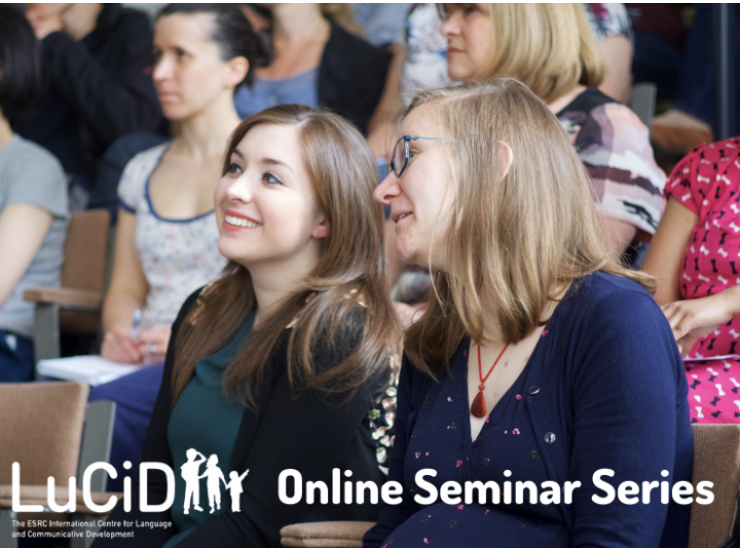
Our next LuCiD seminar is on Tuesday 10th January 2023 (11am UK time). Prof Ben Ambridge (University of Manchester) will talk about "Putting the cross into crosslinguistic research: Focusing on the similarities, not the differences"
Abstract: Many accounts of child language acquisition struggle because they are designed to explain findings from only a single language (most often, of course, English) and fail to translate to learners of other languages. Studies that do include more than one language often focus on differences rather than similarities (English children do this because English is like this; Lithuanian children do that because Lithuanian is like that). While crosslinguistic differences are interesting and important, focussing overly on these differences can hamper progress towards our overarching goal: outlining the mechanisms and processes that allow children to learn any language. In this talk I will outline three research projects that involve not just multi-language but explicitly cross-linguistic research: running more-or-less the same study across different languages, focussing on the similarities, not the differences. First, I will summarize several studies of inflectional noun and verb morphology, mainly across Polish, Finnish and Estonian, but with some brief excursions into Lithuanian and Japanese. Across all of these languages, children’s errors pattern according to word-form frequency and (where studied) phonological neighbourhood density. Second, I will summarize almost-identical adult grammaticality judgment studies of passives in English, Indonesian, Mandarin, Balinese and Hebrew. Across all five languages, the relative acceptability of passives (but not other constructions with similar word order) is predicted by verb semantics, specifically the extent to which the passive subject is affected/changed by the action (e.g., The man was [kicked > seen] by the woman). Third, I will summarize almost-identical adult and child grammaticality judgment studies of causatives across English, Hebrew, Hindi, Japanese, K’iche’ Mayan and Balinese. The relative acceptability of more- vs less-transparent causative forms (e.g., He broke the stick vs He made the stick break) is again predicted by verb semantics; here, the extent to which the caused and causing event merge into one. Figure 1 shows some of these data for English. I will end by arguing that these finding are best explained by an exemplar model of language acquisition, and by presenting some findings from simple computational models that instantiate many of the assumptions of such an approach.
How to join the seminar: This seminar will take place in person at the University of Manchester, but we will provide a blended approach for anyone who is unable to attend in person. As always the seminar is free to attend & booking isn't required, just get in touch to request the zoom link and don't forget to join the seminar mailing list
Where to find us: Theatre B in the Zochonis Building. The Zochonis Building is number 60 on the campus map Theatre B is located on the ground floor, along the corridor on the right as you enter.
